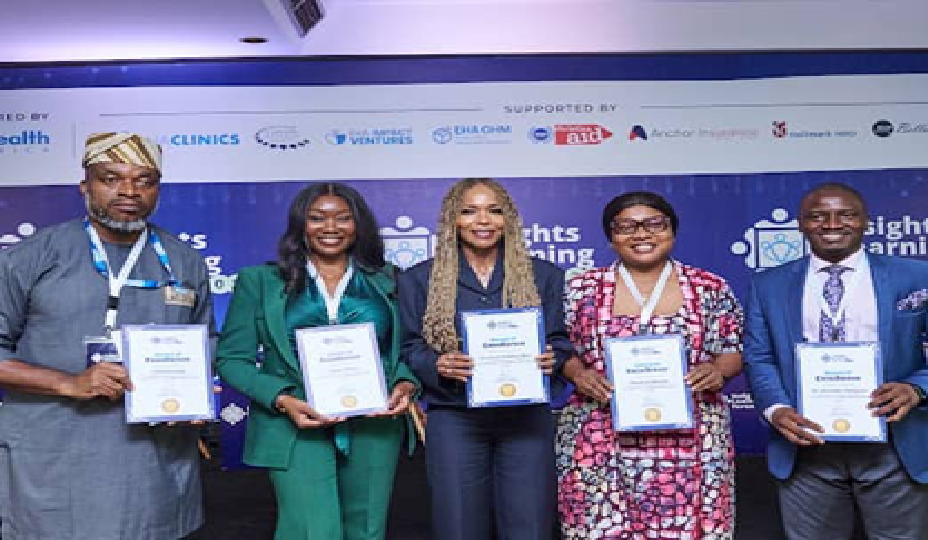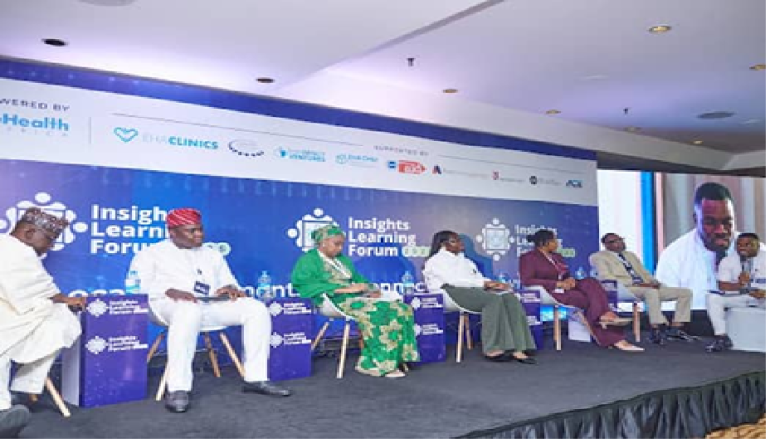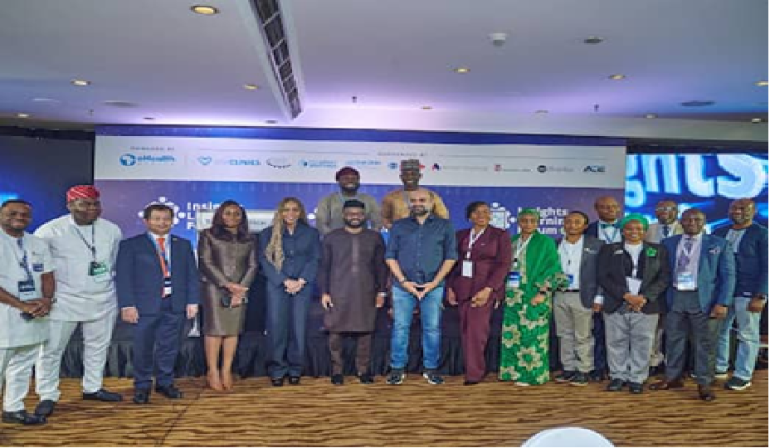Listeners:
Top listeners:
-
play_arrow
104.9FM Best rock music demo
-
play_arrow
Demo Radio Nr.1 For New Music And All The Hits!
-
play_arrow
Demo Radio Techno Top Music Radio
-
 play_arrow
play_arrow
Police Commissioner Launches Weapon and Riot Control Training for FCT Officers Democracy Radio
Africa Must Invest Locally in Digital Health to Achieve Universal Coverage

By: Julian Osamoto
Stakeholders in the health sector have called on African nations to prioritise local funding and leadership in digital health solutions to improve public health outcomes and reduce dependence on foreign aid.
The call was made during the Insights Learning Forum (ILF) 2025 in Abuja, organised by eHealth Africa, which brought together government officials, private sector leaders, health innovators, and development partners to explore strategies for building connected as well as sustainable health systems across the continent.
Local Commitment Over Donor Dependence
In her opening remark Ota Akhigbe, Director of Partnerships and Programs at eHealth Africa, stressed that transformation in healthcare begins with local ownership rather than reliance on external donors.
“Transformation does not begin with flashy tools or external funding. It begins with local commitment, with communities choosing to own their health future and backing that choice with investment,” Akhigbe said.
She explained that while technology is driving positive change, sustainability depends on state governments, private companies, and individuals investing in health systems, rather than focusing solely on donor-driven projects.
“External funding has done so much, but we need to make sure these innovations last. Local investment goes beyond money—it’s about leadership, accountability, and creating ideas locally that we can even export,” she added.
Speaking further Ota emphasised the need for state governments to prioritise health in their budgets and for private companies to invest in health infrastructure instead of billboards.
She also revealed that Kano State has been a strong partner, adopting eHealth tools such as Planfeld and Lomis, which government officials are now advocating because “they work.”

Executive Director of eHealth Africa, Atef Fawaz, reinforced the role of partnerships:
“Transformation in public health begins at the community level, powered by local insights and fuelled by technology. Digital systems are lifelines that connect people and data for lasting change.”
Digital Health: Africa’s Missed Advantage
Delivering a keynote address, Dr. Mories Atoki, CEO of the African Business Coalition for Health, warned that failing to embrace digital health would harm the continent’s future.
“Digital health is not a luxury; it is an advantage of our time. If we fail to leverage it, we will be doing a disservice to our continent and our people,” Atoki said.
She highlighted the urgent need for stronger regulatory frameworks, interoperability of health systems, and community-led innovations to make digital tools effective. According to her, Africa carries 25% of the global disease burden but has only 3% of the world’s healthcare workforce.

Tackling Digital Poverty
Dr. Francis Ohanyido, President Emeritus of the Academy of Public Health, cautioned against “digital poverty” and called for domestic resource mobilization:
“Africa carries 25 percent of the global disease burden. Domestic resource mobilization is critical for health sovereignty. Without it, we cannot achieve universal health coverage,” he said.
The ILF 2025, forum with the theme: Local Investments for Connected Communities: The power of Digital Health Networks in Public Health Transformation, focused on turning insights into actionable plans, with stakeholders pledging to amplify existing innovations.
Written by: Julian Osamoto
#DemocarcyRadio Atef Fawaz eHealth Africa ILF 2025
Copyright Democracy Radio -2024


